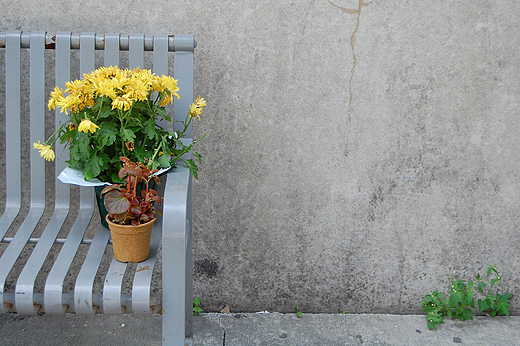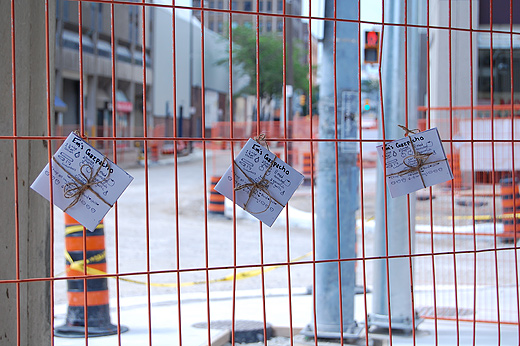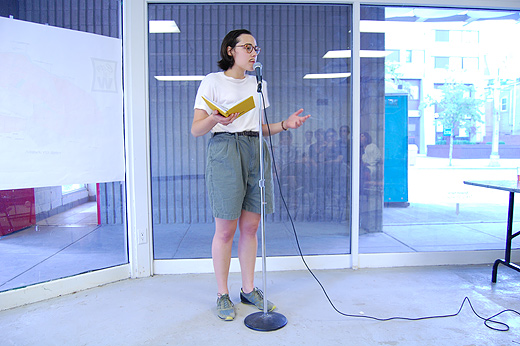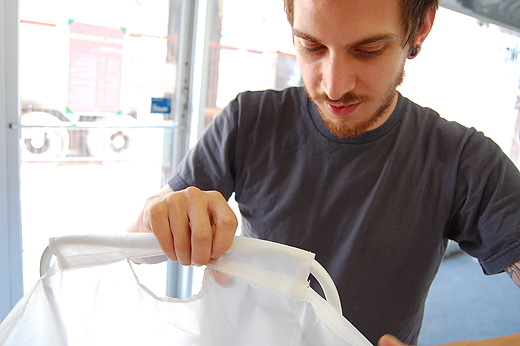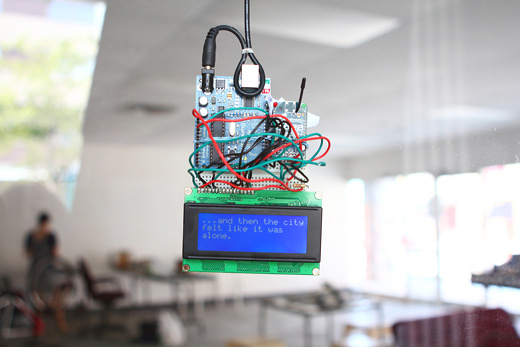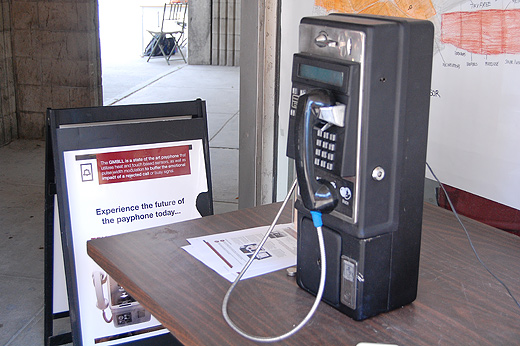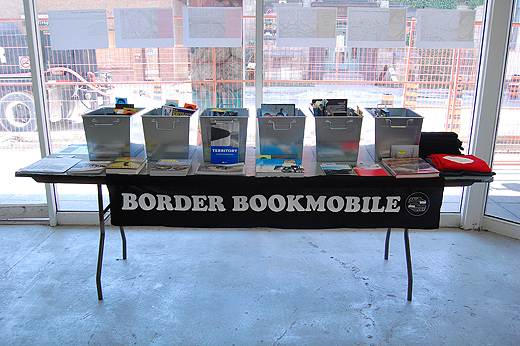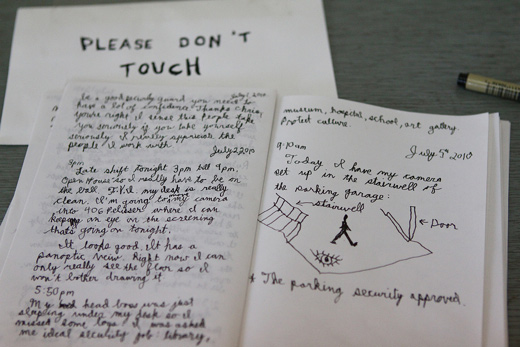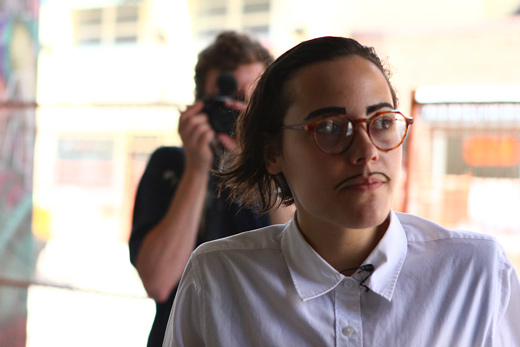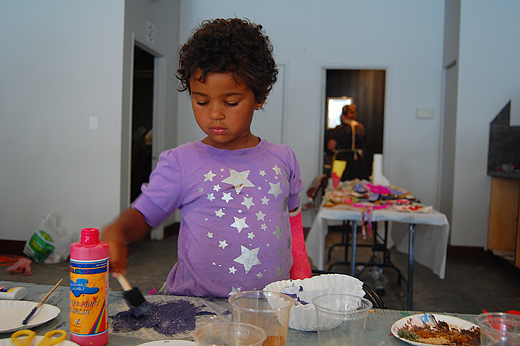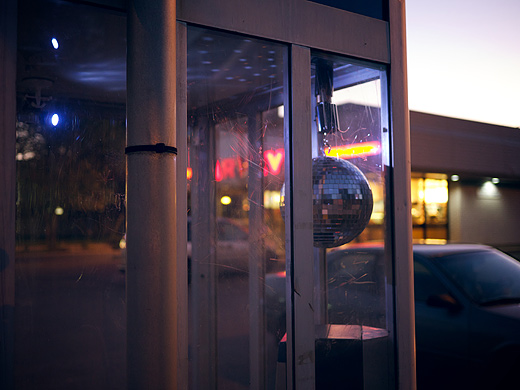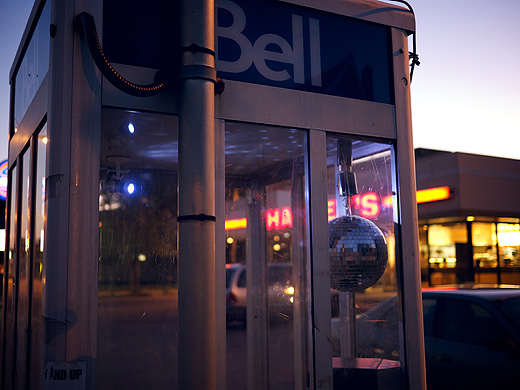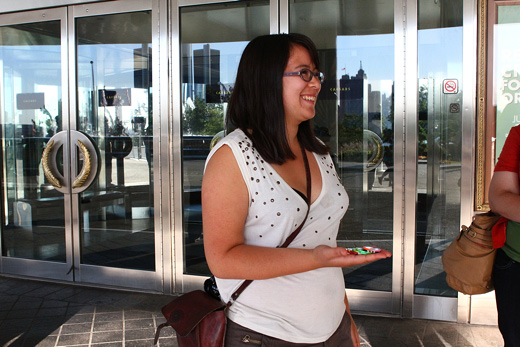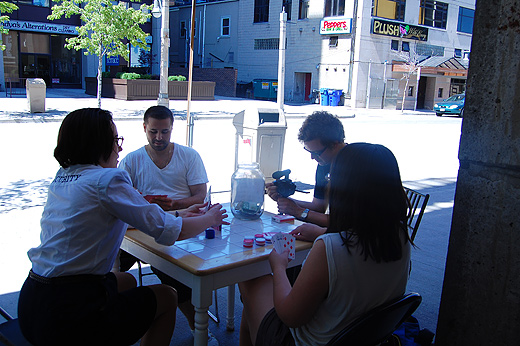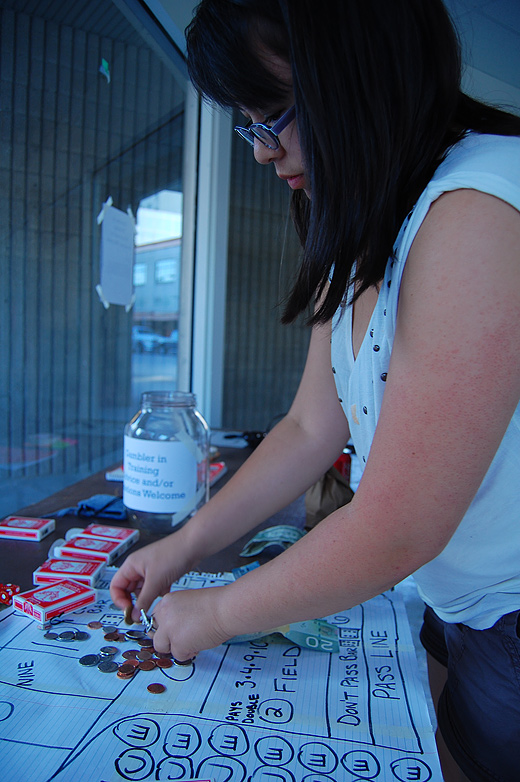
We’ve been really lucky.
For a couple of years now, we’ve been able to do the work that we’ve wanted to do, make the kinds of changes that we want to see, and create a set of projects that have kept us interested in staying in Windsor.
The Storefront Residencies for Social Innovation wrapped up a couple weeks ago. For 30 days, we hosted 25 amazing artists and artist collectives, all of whom worked in downtown Windsor and generated a huge number of new ideas, initiatives, and relationships.
For 30 days, we were very, very lucky.
From June 11th to July 11th, we saw projects that redefined the idea of what BIAs could do, generated new models for micro-economies by exchanging food for stories, unravelled and reassembled long lost sweaters, and introduced an unprecedented level of investigation into the personal histories found in homes (and gardens) across the city.
Projects that openly played with urban infrastructures, investigated the potential for utilizing the postal service for remembering forgotten places, and made many, many, many kinds of maps will all have a lasting impact on the people who were lucky enough to encounter them.
Workshops for children and adults made real and impacting use of open spaces, stories around our border realities were eagerly shared, and many delicious pies, meals and snacks were collaboratively prepared and enjoyed over insightful conversations using fresh and local ingredients.
Installations lit up and animated storefronts, interrupted the social experience of public spaces, and imagined the collapse of municipalities generated a new way to look at materials and architecture.
Performative works demonstrated DIY surveillance methodologies, actively spent time in marginalized spaces, infused the local economy with gambling earnings from the casino, and generated a factory from social media technologies.
All of these things happened here in Windsor in just 30 days.
SRSI created a concentrated series of activities that demonstrated the potential in rethinking how we attribute value to space, changed how we might think about creative activity impacting a community, and looked at the possibility to forget about a set of economic development strategies that haven’t worked for quite some time.
The things that we’ve felt about Windsor — its potential, its frustrations, and the novel possibility for generating creative work that can only happen here — were all reinforced through this residency project. We have to admit that we’ll probably do it again, in some fashion, because we believe that the projects we saw unfold are only the beginning of the incredible things that can happen in this city.
We want to thank everyone who participated in this project — without you, this would not have been possible. Your work made an impact on us, and we might argue, the entire city. Thank you.
This project was generously supported by the City of Windsor: Cultural Affairs Office, Arts Council Windsor & Region, Windsor Pride, and the Ontario Arts Council.


